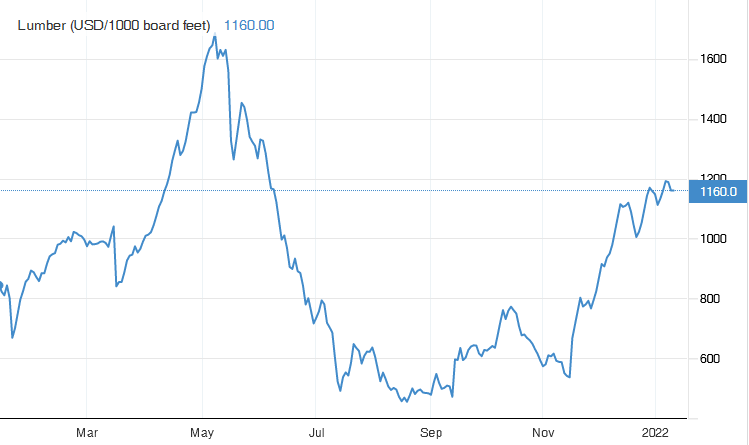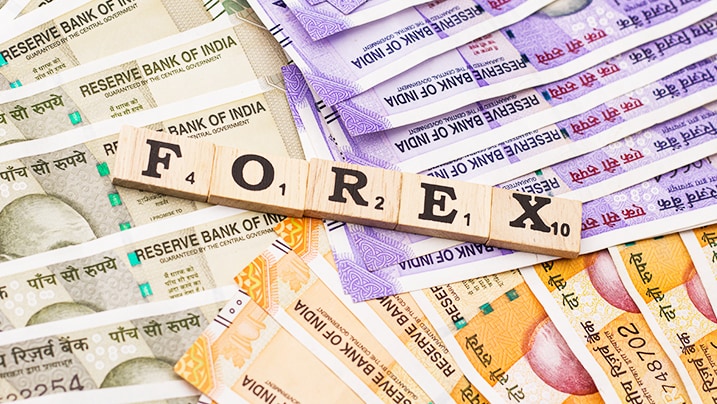
Forex trading comes with some disadvantages. Forex trading offers little in the way of residual returns, unlike stocks and bonds which can offer dividends and interest payments. To be able to trade successfully in the Forex market, you must have excellent technical knowledge and risk-aversion. These disadvantages can be overcome with a few simple tips. Here are some of the most popular pros and cons of forex trading.
Leverage ratio
A forex trading strategy involves using leverage (or borrowing money) to increase your return on investment. The total value of your investment must exceed the interest you pay on the borrowed funds. If your leverage ratio is 1:00, for example, to open a position involving 1000 Canadian dollars, you will only need to deposit 0.1 US Dollar. This margin is commonly denoted as a percentage your total position size.

Complexity
The market's complexity is one of the most important things to take into consideration before you begin your forex journey. It is impossible predict the future movements of currencies in the forex markets. Forex investments can earn a limited amount of money. This is in contrast to stock markets where speculators are risking their own cash. Early investors can enjoy astronomical gains in stock market investments. However, forex markets are largely controlled by supply and demande.
Liquidity
Forex trading is only possible with high liquidity. However, not all markets have the same liquidity. There may be gaps between price movements when there are unexpected news releases and changes in interest rates. These gaps are usually less than 0.50% of currency's value, but they are not common. Highly liquid markets are better for traders looking to reduce their risk. Compared to other currencies, the US dollar is the most liquid. Its value can be found in all major currency pair and accounts for 75% Forex trades. However, high liquidity does not mean high volatility.
Profitability
Before you enter the Forex market, it's crucial to have a good understanding of the market. Forex is the most volatile financial market. Therefore, it's essential to keep informed about current events. Some participants make huge dividends but most people end up spending their money. An error made by beginning traders is to place more emphasis on profits than risk. In the hopes of making 30% profits, most traders trade too much. You must be able to recognize the risk to make a decent profit.

Regulation
Forex is heavily regulated by the USA, as opposed to other financial sectors. Brokers are authorized and monitored by organizations. These organizations strive to ensure transparency and financial safety for their members. The two main organizations responsible for Forex regulation in the USA are the National Futures Association and the Commodities Futures Trade Commission. These agencies create and enforce regulations that both are efficient and innovative. This article will address the importance of forex regulation.
FAQ
What is the purpose of the Securities and Exchange Commission
SEC regulates securities brokers, investment companies and securities exchanges. It also enforces federal securities law.
What is a Stock Exchange exactly?
Companies can sell shares on a stock exchange. This allows investors to purchase shares in the company. The price of the share is set by the market. It is often determined by how much people are willing pay for the company.
Companies can also raise capital from investors through the stock exchange. Investors give money to help companies grow. They do this by buying shares in the company. Companies use their money in order to finance their projects and grow their business.
There are many kinds of shares that can be traded on a stock exchange. Some of these shares are called ordinary shares. These are the most popular type of shares. Ordinary shares are traded in the open stock market. The prices of shares are determined by demand and supply.
Other types of shares include preferred shares and debt securities. Preferred shares are given priority over other shares when dividends are paid. These bonds are issued by the company and must be repaid.
What is the difference between stock market and securities market?
The securities market refers to the entire set of companies listed on an exchange for trading shares. This includes stocks and bonds, options and futures contracts as well as other financial instruments. Stock markets are generally divided into two main categories: primary market and secondary. Primary stock markets include large exchanges such as the NYSE (New York Stock Exchange) and NASDAQ (National Association of Securities Dealers Automated Quotations). Secondary stock market are smaller exchanges that allow private investors to trade. These include OTC Bulletin Board (Over-the-Counter), Pink Sheets, and Nasdaq SmallCap Market.
Stock markets are important for their ability to allow individuals to purchase and sell shares of businesses. Their value is determined by the price at which shares can be traded. New shares are issued to the public when a company goes public. Investors who purchase these newly issued shares receive dividends. Dividends are payments that a corporation makes to shareholders.
Stock markets are not only a place to buy and sell, but also serve as a tool of corporate governance. Shareholders elect boards of directors that oversee management. The boards ensure that managers are following ethical business practices. If a board fails in this function, the government might step in to replace the board.
How can I invest in stock market?
Brokers allow you to buy or sell securities. Brokers can buy or sell securities on your behalf. Brokerage commissions are charged when you trade securities.
Banks typically charge higher fees for brokers. Banks often offer better rates because they don't make their money selling securities.
If you want to invest in stocks, you must open an account with a bank or broker.
A broker will inform you of the cost to purchase or sell securities. This fee will be calculated based on the transaction size.
You should ask your broker about:
-
Minimum amount required to open a trading account
-
If you close your position prior to expiration, are there additional charges?
-
What happens if you lose more that $5,000 in a single day?
-
How many days can you keep positions open without having to pay taxes?
-
How you can borrow against a portfolio
-
Whether you are able to transfer funds between accounts
-
How long it takes transactions to settle
-
The best way to sell or buy securities
-
How to Avoid Fraud
-
How to get assistance if you are in need
-
Can you stop trading at any point?
-
What trades must you report to the government
-
If you have to file reports with SEC
-
How important it is to keep track of transactions
-
Whether you are required by the SEC to register
-
What is registration?
-
How does it impact me?
-
Who is required to be registered
-
What time do I need register?
Can you trade on the stock-market?
The answer is everyone. However, not everyone is equal in this world. Some have better skills and knowledge than others. They should be rewarded.
However, there are other factors that can determine whether or not a person succeeds in trading stocks. If you don’t know the basics of financial reporting, you will not be able to make decisions based on them.
These reports are not for you unless you know how to interpret them. Each number must be understood. You should be able understand and interpret each number correctly.
If you do this, you'll be able to spot trends and patterns in the data. This will help to determine when you should buy or sell shares.
If you are lucky enough, you may even be able to make a lot of money doing this.
What is the working of the stock market?
Shares of stock are a way to acquire ownership rights. The shareholder has certain rights. He/she may vote on major policies or resolutions. The company can be sued for damages. He/she can also sue the firm for breach of contract.
A company cannot issue shares that are greater than its total assets minus its liabilities. It is known as capital adequacy.
A company with a high ratio of capital adequacy is considered safe. Companies with low ratios are risky investments.
How can someone lose money in stock markets?
The stock market isn't a place where you can make money by selling high and buying low. It's a place you lose money by buying and selling high.
The stock market offers a safe place for those willing to take on risk. They want to buy stocks at prices they think are too low and sell them when they think they are too high.
They believe they will gain from the market's volatility. They could lose their entire investment if they fail to be vigilant.
Statistics
- For instance, an individual or entity that owns 100,000 shares of a company with one million outstanding shares would have a 10% ownership stake. (investopedia.com)
- Even if you find talent for trading stocks, allocating more than 10% of your portfolio to an individual stock can expose your savings to too much volatility. (nerdwallet.com)
- US resident who opens a new IBKR Pro individual or joint account receives a 0.25% rate reduction on margin loans. (nerdwallet.com)
- "If all of your money's in one stock, you could potentially lose 50% of it overnight," Moore says. (nerdwallet.com)
External Links
How To
How to make your trading plan
A trading plan helps you manage your money effectively. It will help you determine how much money is available and your goals.
Before setting up a trading plan, you should consider what you want to achieve. You may want to make more money, earn more interest, or save money. You might want to invest your money in shares and bonds if it's saving you money. If you're earning interest, you could put some into a savings account or buy a house. Maybe you'd rather spend less and go on holiday, or buy something nice.
Once you have a clear idea of what you want with your money, it's time to determine how much you need to start. This will depend on where you live and if you have any loans or debts. Also, consider how much money you make each month (or week). Your income is the net amount of money you make after paying taxes.
Next, you will need to have enough money saved to pay for your expenses. These include rent, food and travel costs. These all add up to your monthly expense.
Finally, figure out what amount you have left over at month's end. This is your net disposable income.
Now you've got everything you need to work out how to use your money most efficiently.
Download one online to get started. You can also ask an expert in investing to help you build one.
Here's an example: This simple spreadsheet can be opened in Microsoft Excel.
This shows all your income and spending so far. Notice that it includes your current bank balance and investment portfolio.
And here's a second example. This was created by a financial advisor.
It will let you know how to calculate how much risk to take.
Remember, you can't predict the future. Instead, be focused on today's money management.